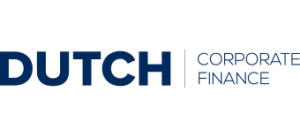Navigating the Maze: Unraveling the Economic Value of Intellectual Property
Navigating the Maze: Unraveling the Economic Value of Intellectual Property
Intellectual property (IP) is a valuable asset that drives innovation, fosters creativity, and fuels economic growth. However, quantifying its economic value can be a daunting task. In this blog, we delve into the challenges faced when determining the economic worth of intellectual property and shed light on the complexities surrounding its valuation.
Subjectivity: A Matter of Perspectives
The value of intellectual property is subjective and influenced by numerous factors. Market demand, industry trends, degree of exclusivity, and the competitive landscape all play a role in shaping its perceived value. Consequently, different stakeholders may hold varying opinions on the value of a specific IP asset, leading to diverse assessments. The challenge lies in finding common ground amidst these subjective viewpoints.
The Absence of Market Transactions
Unlike tangible assets such as real estate or commodities, intellectual property often lacks an active market with frequent transactions. The scarcity of readily available market data makes it challenging to establish a concrete value based on comparable sales or market prices. As a result, valuation experts must navigate uncharted, and sometimes even muddy, waters to estimate the value of IP assets.
Valuation Methodologies: A Complex Landscape
Valuing intellectual property requires specialized knowledge and expertise. There exist various valuation methodologies, such as the income-based, market-based, and cost-based approaches. However, the income-based The income approach is the preferred method because it expresses ‘money’, ‘time’ and ‘risk’. Professionals skilled in IP valuation must carefully analyse the intricacies involved.
Uncertain Future Cash Flows: A Hazy Crystal Ball
The economic value of IP is closely tied to its potential to generate future cash flows. However, estimating these cash flows can be uncertain and speculative, especially for emerging technologies or innovative concepts where market acceptance and commercial success are unpredictable. Gauging the viability of an IP asset and its revenue-generating capabilities requires a keen understanding of market dynamics.
Legal and Regulatory Considerations: Treading the Legal Landscape
Intellectual property rights are safeguarded by legal protections and limitations. The strength, enforceability, and potential legal disputes or challenges surrounding these rights can significantly impact the value of IP assets. Consequently, evaluating the legal landscape and assessing potential risks adds another layer of complexity to the valuation process.
The Perils of Rapid Technological Advancements
In today’s fast-paced world, technological advancements can swiftly render certain IP assets obsolete or less valuable. The risk of disruptive technologies and changing market dynamics further complicates the accurate assessment of IP’s economic value. Valuation experts must remain vigilant, continuously monitoring market trends and technological developments to stay ahead of the curve.
Conclusion
Determining the economic value of intellectual property is a multifaceted endeavour. The subjectivity surrounding its value, the absence of active market transactions, the intricacies of valuation methodologies, the uncertainty of future cash flows, legal considerations, and the ever-present threat of rapid technological advancements make the process challenging. As we navigate this complex landscape, it is crucial to rely on the expertise of valuation professionals who possess the knowledge and skills to unravel the true economic worth of intellectual property. Only through a comprehensive understanding of these challenges can we fully appreciate and leverage the immense value that intellectual.
About the author
Polle-Tobias Taminiau specialises in valuing, buying & selling and financing intellectual property. He is associated with DUTCH Corporate Finance in the Netherlands and works internationally. www.dutch-cf.nl Polle-Tobias is a Register Valuator affiliated with the Dutch Institute of Registered Valuators. His clients mostly are IP-rich companies, ranging from start- and scale-ups to multinationals. Together with Dr Robert Phaal, affiliated with the Institute for Manufacturing at the University of Cambridge, Polle-Tobias wrote the paper “Financing early stage innovation ventures – a value-oriented roadmapping framework” https:// doi:10.17863/CAM.46897

